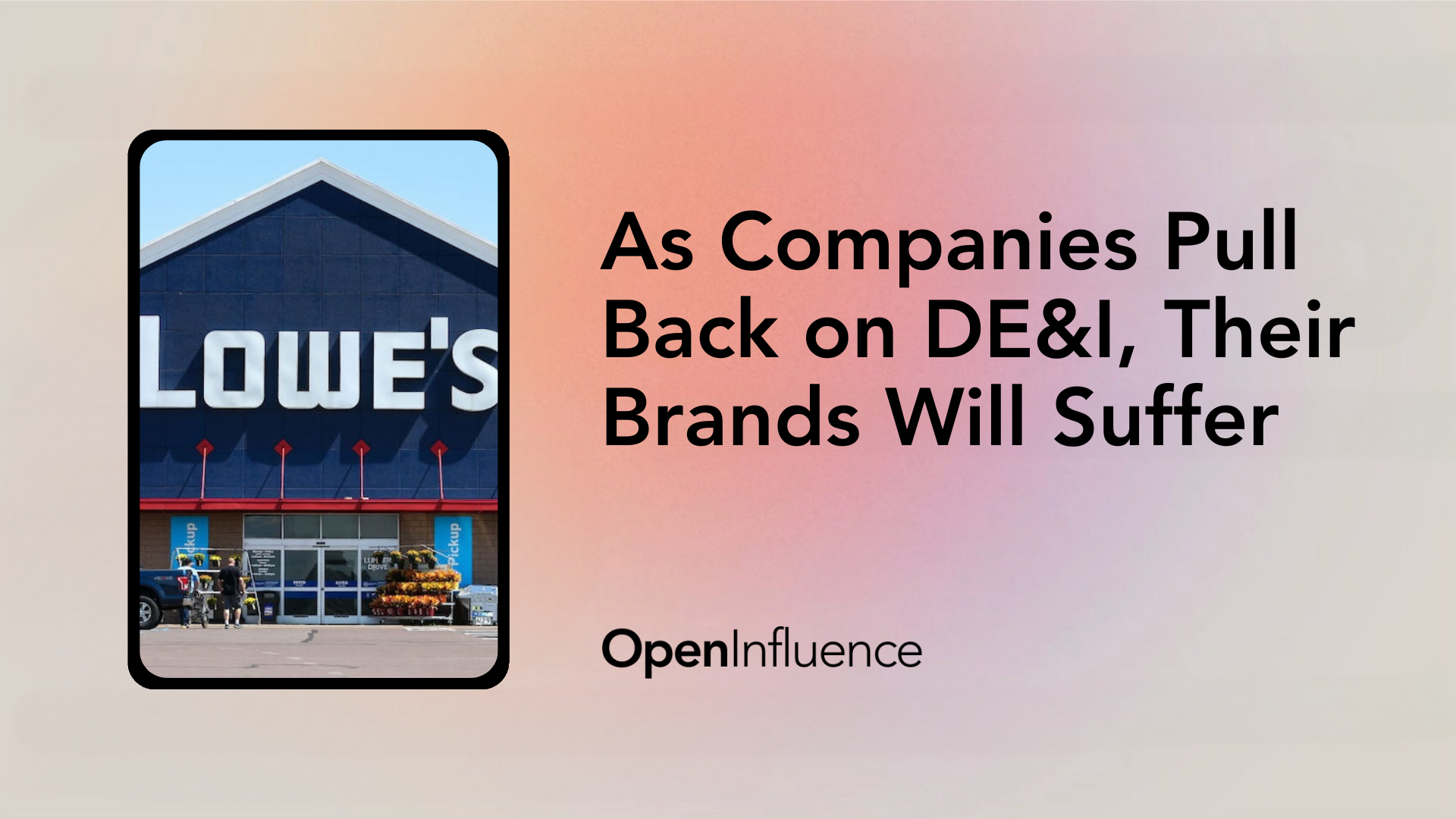Several brands have publicly abandoned DE&I efforts. Marketers warn these decisions will negatively impact their businesses in the short and long term.
NEW YORK: In the past month, seven large brands have announced a pullback from DEI efforts, marking a stark shift from the broad corporate embrace of equity just four years ago.
Ford Motor Co., Harley-Davidson, Lowe’s, John Deere, Jack Daniel’s maker Brown-Forman, Tractor Supply Co. and Molson Coors have all shared plans to scale back their corporate DE&I initiatives to varying degrees, from refusing to participate in the Human Rights Campaign’s yearly Equality Index to ditching diverse supplier goals.
These decisions seem to have been in part influenced by a right-wing influencer named Robby Starbuck, who has been threatening to “expose” large corporations’ internal inclusivity efforts. Per his own posts on X, formerly Twitter, these brands have rolled back their DE&I programs in order to avoid backlash from Starbuck and his followers.
These anti-DE&I decisions mark a step change from the broad public demands of corporate accountability after George Floyd’s murder in 2020. But “that swell has seemingly died away in the past years,” said Kumi Croom, MD at Duncan Channon.
Lola Bakare, CMO adviser and inclusive marketing strategist, said that “the brands that we’re seeing pull out were never in — the decision was already made,” and added that while employees may have been trying to make changes internally, they have “come up against a lot of friction.”
“This random guy [Starbuck] has created an opportunity for that friction to become policy. And when one person’s opinion becomes what drives decision making, everybody loses,” she continued.
Employees not only support DE&I programs at their companies, but expect them noted, said Lisette Arsuaga, cofounder of the Association of National Advertisers’ Alliance for Inclusive and Multicultural Marketing. According to a study from AIMM and the Cultural Inclusion Accelerator, only 6% of respondents were unmotivated or strongly unmotivated to support equitable workplace practices inclusive of race, gender and sexual orientation.
The current corporate DEI pullback is “moving in the wrong direction of where this country should be going and where this country wants to be going,” she said.
Danisha Lomax, EVP and head of client inclusivity and impact at Digitas, added, “It’s not just a moral issue, it is truly an issue that is based on people — and if people are driving commerce and driving business, pulling back on something that will intentionally affect your business is not something we would advocate for, or would encourage any brand to do.”
Why brands are pulling back from DEI
According to Croom, companies are reversing course on DE&I because “there’s so much concern and fatigue going on” for Americans worried about the presidential election, escalating war in the Middle East and economic hardship.
As a result, corporations may feel they have the cloud cover to roll back these policies.
Brands also want to avoid seeming political to consumers, especially during a divisive election year. “Efforts that lean into DEI often feel to corporations that they are taking a side, when it’s quite the opposite of that,” Croom added.
Marketers are still spooked from the backlash against Bud Light last year in response to its partnership with transgender influencer Dylan Mulvaney. But Gem Garcin, associate creative director at Open Influence, believes that while it’s easy for some brands to bend to anti-DE&I criticism out of fear that they “might take an initial hit if people disagree and boycott,” those that stand by their commitments maintain the support of diverse consumers — a growing segment of the population.
Read full article here.

